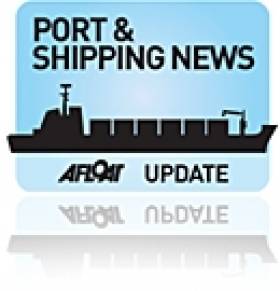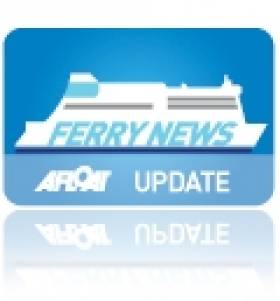Displaying items by tag: Belfast Port
Ports Host UNCTAD’s Train-for-Trade Port Training Programme
The Port Training Programme is comprised of a "Modern Port Management" course and a final dissertation. During this training of trainer's workshop, the senior managers will be trained as local instructors on Modules 1-4 of the "Modern Port Management" course.
On completion of the workshop which ends today, they will serve as local instructors for their respective ports, collaborating with UNCTAD specialists and transferring their acquired knowledge to the participants of the TFT Port Training Programme.
UNCTAD stands for the United Nations Conference on Trade and Development which was launched in 1998. The new Train-For-Trade programme strengthens national and regional human and institutional resources for trade and investment as a key to growth for UNCTAD member countries, particularly the least developed ones (LDCs).
Sponsorships of Ice-Sea Giants
Stena Line themselves will be looking forward to introducing their own giants when two of the largest ferries are to be introduced on the North Channel in the Autumn. The two chartered 30,000grt sisterships are Superfast VII and Superfast VIII. To see the vessel breaking through an an ice-flow, click PHOTO. The 203m long pair can take 1,200 passengers, around 660 cars or 110 freight vehicles. To read more about these 'Superfast' class vessels and the new £80 port terminal click HERE.
The company's area director Michael McGrath said: "It's quite fitting that we are teaming up with the Stena Line Belfast Giants at this time as we prepare to introduce two of the largest ferries every to sail between Northern Ireland and Scotland when we open our new route and port in Cairnryan this November. The two Superfast vessels will be another two Giants to add to our team."
Last year Stena Line made a £40m acquisition of the Belfast to Liverpool (Birkenhead) and Heysham routes and four vessels from DFDS Seaways. The deal was approved by the Irish authorities but remained subject to clearance from the UK's Competition Commission until late last month when they fully approved the acquisition.
This brings to six routes the company runs on its Irish Sea route network where over two million passengers were carried each year, more than its rival ferry operators combined.
- DFDS Seaways
- Belfast Harbour
- Stena Line
- North Channel
- Competition Commission
- BelfastHeysham
- Superfast VII
- Superfast VIII
- Belfast Lough News
- Belfast Port
- Odyssey Arena
- Belfast Giants
- BelfastCairnryan
- New ferryport
- Nottingham Panthers
- Sheffield Steelers
- Hockey Festival Weekend
- BelfastLiverpool (Birkenhead)
- Irish Sea ferry companies
- Irish icehockey






























































